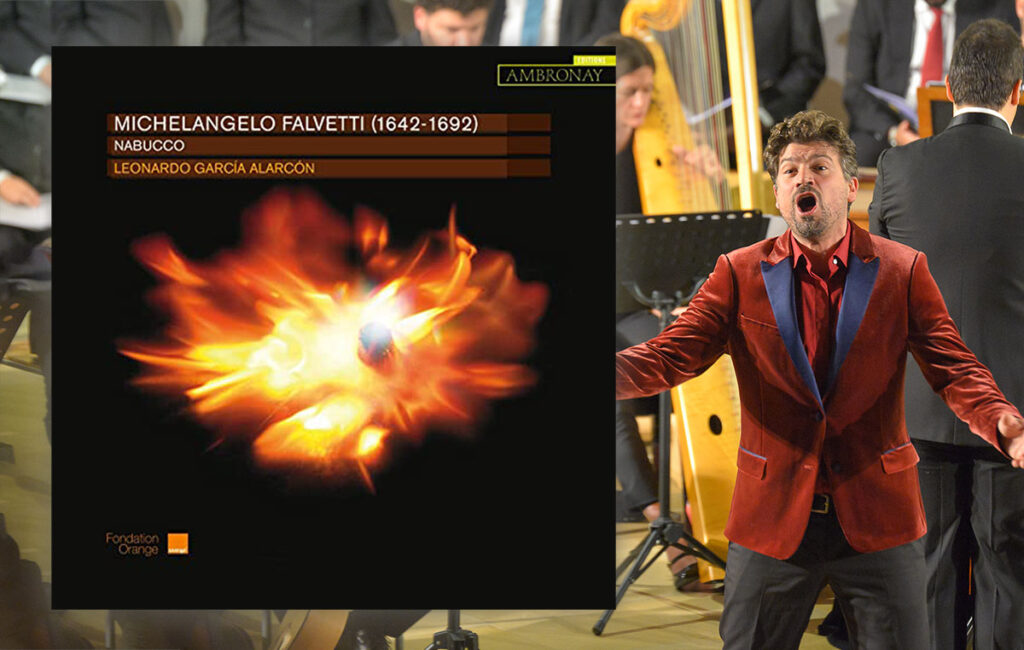


Michelangelo Falvetti (1642 – 1692) composed many works, including polyphonic masses, concertante psalms and motets for soloists or several voices with basso continuo. Only two magnificent Dialoghi have survivedin their entirety: Il Diluvio universale, a work for five voices that dates from 1682, , and Il Nabucco, a work for six voices performed in Messina in 1683. In these two masterful scores, Falvetti demonstrates what an accomplished musician he is. He was an expert in the Roman and Venetian Baroque musical traditions, and his music is characterised by a Baroque sensuality and expressiveness. These qualities already emerged in Leonardo García Alarcón’s refined interpretation of Diluvio universale, with Cappella Mediterranea and the Namur Chamber Choir (Ambronay Festival 2010 and 2011). Nabucco is no less extraordinary. The libretto of Dialogo del Nabucco by Vincenzo Giattini is inspired by episodes recounted in the second and third chapters of the Book of Daniel. These chapters focus on the ruler, Nebuchadnezzar II, the prophet Daniel and three young men, Ananias, Azariah and Mishael, who were thrown into a fiery furnace for refusing to worship a pagan idol, but emerged unscathed.
Nicolo Maccavino
“Alarcón conducts Cappella Mediterranea and the Chœur de Chambre de Namur with incandescent fervour. As the album notes indicate, the score has been filtered through his analytical genius. This sometimes leads to debatable choices, such as the use of traditional instruments from the East like the duduk and the ney, but it cannot be denied that this latest Baroque recreation is unlike any other. It is a pure delight for the ears. A must-listen!”
Jérémie Bigorie for Classica, November 2013
See full article
“This rediscovery is both miraculous and timely. Miraculous because these are the only surviving two works by Falvetti, and timely because the conductor and his ensemble seem to be harvesting everything that was sowed by Garrido, Savall and Pluhar. Our ears are therefore more prepared than ever to fully appreciate this harmonic delight, these vocalizations that evolve from melisma to virtuoso performance, these shimmering, oriental instruments played by musicians who remain invested, even in silences, these dancing, Arabian rhythms that seem to have brought the whole Mediterranean together at the end of the seventeenth century in Sicily, where a society under Spanish domination prided itself on a musical syncretism that valued the exotic, rather than castigating the foreign.”
Guillaume Saintagne for Forumopera, 30 June 2016
See full article


